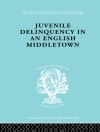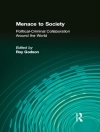In 1930, the great Spanish philosopher Jos Ortega y Gasset set forth a program for reforming the modern Spanish university. Aware that the missions of the university are many and often competing, Ortega built his program around a conception of a ‚general culture‘ that knows no national boundaries or time limits and could fit into any national system of higher education. His ideas are especially pertinent to contemporary debate in America over curriculum development and the purpose of education.
In this volume Ortega sought to answer two essential questions: what is the knowledge most worth knowing by all students and what is the function of the university in a modern democracy? Basing his answers on his own deep personal culture and an extensive knowledge of the various European university systems, Ortega defined four primary missions: the teaching of the learned professions, the fostering of scientific research, training for political leadership, and finally the creation of cultured persons with the ability to make intellectual interpretations of the world. Ortega“s understanding of ‚general culture‘ is set out in great detail here. He meant an active engagement in ideas and issues that were both historical and contemporary. His concern is with the classical problems of justice, the good society, who should rule, and the responsibilities of citizenship.
This edition first published in 1998. Routledge is an imprint of Taylor & Francis, an informa company.












